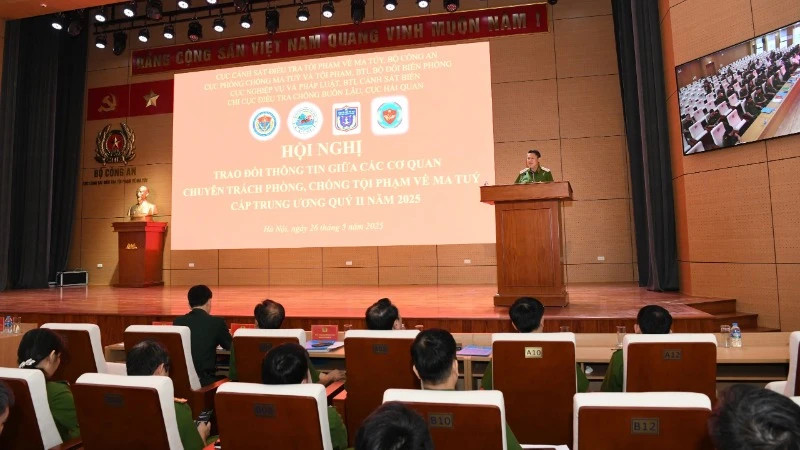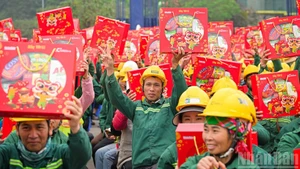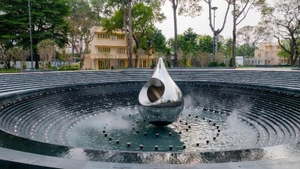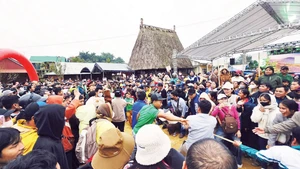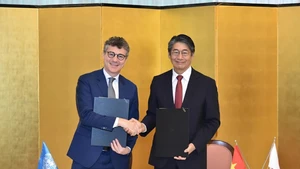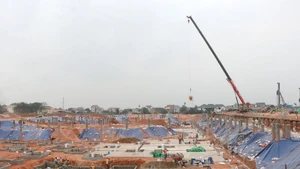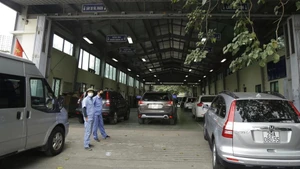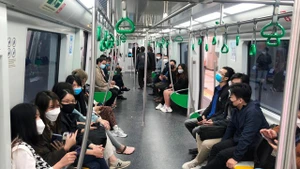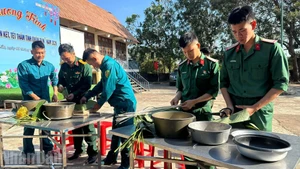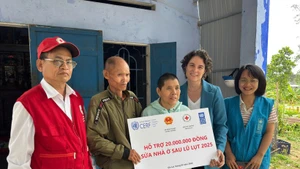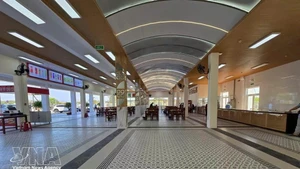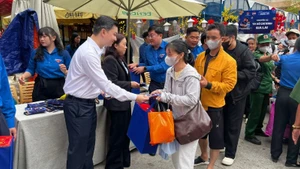The Investigation Police Department on Drug-related Crimes under the Ministry of Public Security, in collaboration with the Department for Drug and Crime Prevention and Control (Border Guard Command, Ministry of National Defence), the Department of Operations and Legal Affairs (Coast Guard Command, Ministry of National Defence), and the Anti-Smuggling Investigation Sub-Department (Department of Viet Nam Customs, Ministry of Finance), held a conference to exchange information among drug-related crime prevention agencies at the central level in Ha Noi on May 26.
A summary report presented at the conference highlighted that drug-related crimes worldwide and regionally have become increasingly rampant, with criminal activities growing more aggressive and difficult to control.
The "Golden Triangle" remains a major hub for drug production. International drug-related crime organisations continue to operate trafficking networks from the Golden Triangle region through neighbouring countries into Viet Nam, before onward transport to third countries for consumption.
Notably, many illegal drug manufacturing, trafficking, and use lines in Viet Nam have been detected and successfully dealt with.
One prominent case involved the Investigation Police Department on Drug-related Crimes (Ministry of Public Security), which, in coordination with customs and local police forces, cracked Project 199D, dismantling a large-scale illegal production ring for precursors and narcotics headed by foreigners in Nha Trang City, Khanh Hoa Province. Authorities arrested 11 individuals and seized 1.4 tonnes of ketamine and nearly 80 tonnes of chemicals and precursors, along with related documents.
Authorities also reported ongoing challenges posed by criminals exploiting business establishments with good security and order conditions as venues for illegal drug use, particularly in large urban centres.
In response, specialised anti-drug forces have vigorously implemented coordinated operations, improving mutual support in the exchange, verification and handling of information. This led to the successful investigation and resolution of a joint project targeting a major drug manufacturing network, recognised and highly praises by senior leadership.
Since the beginning of 2025, the drug-related crime investigation police force has detected over 8,700 drug cases, arresting more than 16,300 suspects and seizing over 113kg of heroin, 614kg of cannabis, more than 2.2 tonnes and 1.3 million pills of synthetic drugs, and 3.7 billion VND in cash.
The Investigation Police Department on Drug-related Crimes under the Ministry of Public Security, in collaboration with other units, uncovered 35 cases involving 207 individuals, and seized over 1.6 tonnes and 33,000 pills of synthetic drugs, 44kg of heroin, 228kg of cannabis, nearly 80 tonnes of chemicals and precursors, along with numerous related materials. Among these were two joint cases with anti-drug units of border guard, coast guard and customs.
According to forecasts, drug-related crime will continue to evolve unpredictably both regionally and globally, placing direct and significant pressure on Viet Nam. Drugs will primarily continue to be trafficked into Viet Nam from abroad, either for domestic consumption or further transport to third countries. Methods are expected to grow increasingly sophisticated, violent, and dangerous.
To proactively detect and combat these activities, Lieutenant General Nguyen Van Vien, Head of the Investigation Police Department on Drug-related Crimes, urged central-level anti-drug agencies to intensify communications and mobilisation of people’s active participation, especially ethnic minority communities in border areas and fishermen, to raise legal awareness and promote active public participation in anti-drug movements. This would help create a "frontline barrier" to intercept drugs smuggled into Viet Nam from across borders and the sea.
He also called for enhanced coordination and operational synergy among the four specialised drug enforcement forces to prevent drugs from infiltrating border areas, border gates and on the sea. A unified, synchronised deployment of professional investigative measures is needed across land borders, unofficial crossings, airports and seaports.
Joint high campaigns should be launched for public awareness, law enforcement crackdowns, and the formulation of action plans to address complex drug crime situations along key routes and hotspots, especially border areas, air routes, key coastal areas, and major ports.
Lieutenant General Nguyen Van Vien emphasised the importance of international cooperation in drug-related crime prevention to facilitate information exchange, verification support, and stricter control of narcotics and precursors. This would bolster Viet Nam’s partnerships with other countries and international organisations in line with strategic directions, development goals, and international norms and regulations.
Additionally, agencies are encouraged to strengthen mutual understanding, solidarity, and close cooperation among specialised anti-drug forces. They are also advised to hold regular reviews and draw lessons from major drug-related investigations to enhance future coordination.
